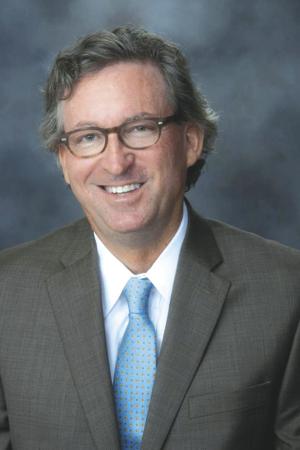Legacy Post Disclaimer
This is a #Legacy post imported from The Apalachicola Time’s previous platform. If you’re experiencing issues with this article, please email us at news@nevespublishing.com.
Fighting for our lives
With a rise in overdose deaths from opioids continuing to plague Franklin County, educators, law enforcement officials, health experts and substance abuse organizations have brought the fight home by taking it to the schools and the streets.
On Friday morning at Franklin County High School, representatives of the Florida Department of Juvenile Justice helped to lead the program being championed by Florida First Lady Casey DeSantis.
And last week, DISC Village, a Tallahassee-based behavioral healthcare provider with a growing outreach in the county, unveiled the first eight of what will be several locations in Franklin County where residents can get free spray bottles of naloxone, a medication which can thwart overdose deaths in the precious minutes before the opioid can kill.
After Sara Ward’s culinary arts program’s students served up the dignitaries a fresh, hot breakfast, Superintendent Steve Lanier opened Friday morning’s program at the school, which featured a video produced by the “The Facts, Your Future” program
The strongest impact, though, came from the direct appeal by key community leaders, beginning with Lr. Wesley Creamer, head of the narcotics unit of the Franklin County Sheriff’s Office.
He spoke of the ravages of fentanyl, a substance that when added in tiny amounts to cocaine, marijuana and other drugs can lead to death.
“We’ve had quite a few deaths we’ve had to work, we see a lot of bad things with these overdoses,” said Creamer. “We’re finding out now fentanyl can be put into vape cartridges.
He went on to tell the kids the harm a felony conviction can have on a person’s life, including lengthy prison time. “You cannot get a good job at all,” Creamer said. “Addiction starts here with you guys right now. These things are really, really serious. Don’t start it now and you won’t have these issues later on and you won’t have to deal with me or any of my guys.”
Christina Ash, chief probation officer of the Florida Department of Juvenile Justice, addressed the wide range of drugs, from hard drugs to marijuana to alcohol.
“It absolutely breaks our hearts to see what alcohol and drugs can do, not only to you all but to your families as well,” she said. “You can end up addicted and possibly even dying.
“Your life is only beginning, and these conversations are important to have,” said Ash. “You won’t always be here in Franklin County, and we want you to have everything you can possibly have to be successful. Listen with an open mind and don’t automatically shut all of us off.”
Rita Smith, who holds a doctorate in nursing as the DJJ’s chief medical officer, described herself as just “a country girl from Calhoun County” as she recounted the pain she has seen both in her family medicine practice and in her personal life.
“I saw women addicted to pain medicine who delivered babies who had birth defects and people dying from drug abuse,” she said. “I saw a set of twin brothers who were on opioids for so long, one had kidney failure and the other had heart damage as a result from their oxycontin addictions.”
Smith suggested students look at pictures of people who use meth. “They’re in their 30s and 40s, and they look like they’re in their 60s and 70s,” she said. “The chemicals damage their bodies.
“Young people are quicker to get addicted and quicker to have long-term effects,” she said. “And we end up in turn hurting the people around us.”
Smith recounted a heart-wrenching tale of her late husband, who developed a wonderful relationship with his grandson, “best hunting buddies,” before he became ensnared in a drinking problem.
“He couldn’t go back to see his grandkids,” Smith said. “He got arrested for drunk driving and he became violent. This once sweet loving man had turned into a monster.”
After struggling with mental health issues and unsuccessful rehab, complete with restraining orders, the man lost contact with his grandson, who would often call to see how his Poppa was doing.
“They found his body several days after he passed away,” Smith said.
The grandson, only 12 at the time, took the death hard, but slowly turned his life around, and is planning to get a track scholarship and enter the military as an officer.
“He wears a necklace with his Poppa’s ashes, to remind him,” she said.
Smith urged students to remember five key things:
- Substance abuse does more than hurt your body, you’re hurting the people around you who love you.
- To surround yourself with positive people, people who love you and want what’s best for you.
- If you can’t talk to your parents, find an adult who is trustworthy who loves you and wants what’s best for you.
- It’s never too late to start making good decisions.
- Never give up on your dreams and never stray from the path you need to take to get to those dreams
Sarah Quaranta, health officer for the Florida Department of Health in Franklin County, said she grew up with a parent with a substance abuse disorder. “The adults in this room are here for you,” she said.
She recounted several health statistics and reminded the young people that “using illegal substances can cause permanent damage to your appearance, brain and body.
“It’s a fast track to not aging gracefully and no social media filter is going to fix it,” Quaranta said, noting that wrinkles, tooth loss and mental illness can all follow in the wake of drug use.
“Drugs’ effects override the healthy messages of the brain,” she said. “Your brain is literally changing with drugs, you prioritize drugs over everything in life. Drug dealers on the street don’t care about you, they care about the profit they’re making.”
She also discouraged vaping, noting that “it’s gross, it’s nasty, stop doing it. It contains formaldehyde, and that can cause damage.”
Principal Danielle Rosson wrapped up the program with a simple message.
“Remind yourself you have a choice,” she said. “You have a support system on that stage in this room, on this campus, at your home, and in this county.”
The county health department, as well as DISC Village, have now made naloxone, easily available throughout the county. Often called Narcan, naloxone is a medication that reverses the effects of an opioid overdose, restoring breathing and consciousness within minutes of being administered to a person who has overdosed on percocet, heroin or fentanyl.
“The whole push for naloxone is to try to intervene, since fentanyl is in marijuana, cocaine and everything else you can think of,” said Jennifer Travieso, DISC Village’s director of adult services.
DISC Village has distributed kits throughout the county, with information on how to administer the nasal spray and how to access services.
“The big push from DISC Village is to get Narcan in homes so they can fight back, so they have the ability to intervene and save a life,” Travieso said. “All you do is you open up the bag, peel it and place it in the nose. Peel, place and push.”
She said in the event someone is not in the throes of a potential opioid overdose, administering the Narcan “won’t harm them in any way.”
A list of the current locations can be found in the accompanying chart. “We’re refilling them and checking them frequently,” Travieso said. “It’s better to have it and not need it, then need it and not have it.”
In addition, the Florida Department of Health in Franklin County is among 16 county health departments that have received 1,500 naloxone kits, with the next phase of this initiative to expand distribution to all 67 county health departments.






Meet the Editor
David Adlerstein, The Apalachicola Times’ digital editor, started with the news outlet in January 2002 as a reporter.
Prior to then, David Adlerstein began as a newspaperman with a small Boston weekly, after graduating magna cum laude from Brandeis University in Waltham, Massachusetts. He later edited the weekly Bellville Times, and as business reporter for the daily Marion Star, both not far from his hometown of Columbus, Ohio.
In 1995, he moved to South Florida, and worked as a business reporter and editor of Medical Business newspaper. In Jan. 2002, he began with the Apalachicola Times, first as reporter and later as editor, and in Oct. 2020, also began editing the Port St. Joe Star.